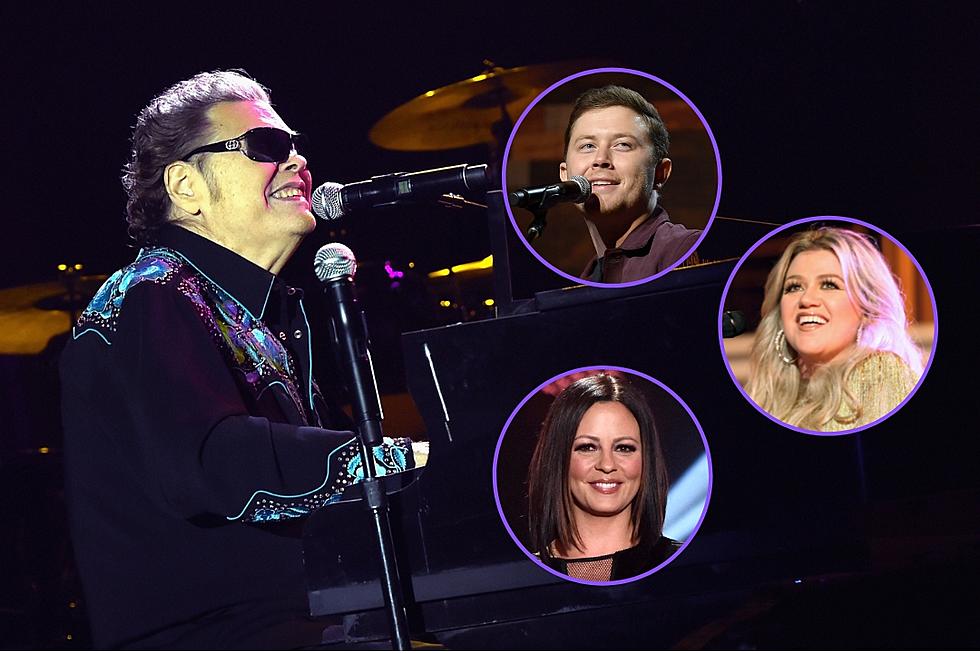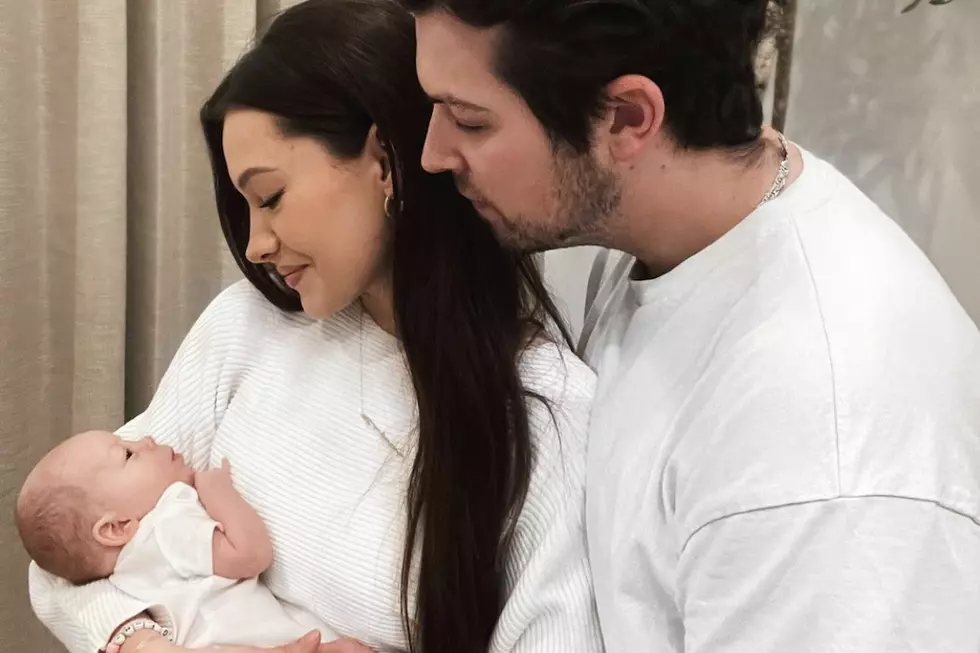
It’s High Time Again for Randy Houser
Randy Houser's new Magnolia album begins with, "I made it up to Nashville, played the part" — and for a few years that's what he did. But not anymore.
The "What Whiskey Does" singer is back with a new church-fired, Mississippi mud-slathered mix of soulful country-rock, blues, and blue-collar truths made to separate him from the mainstream Nashville pack.
Magnolia is a fitting name for Houser's fifth studio album (No. 3 with Stoney Creek Records after one each on Universal South and Show Dog Nashville), as both he and this release impute Southern grandeur and easy charm. "Anything Goes," "Like a Cowboy" and a half-dozen album cuts from the past decade prove he's one of country music's most gifted vocalists — for once a Ronnie Dunn comparison is accurate — but tell him that and he'll "aww, shucks" you with that famous laugh.
You'll find those soaring vocal moments across several of the 12 songs ("No Good Place to Cry" — dang, son!), but that's not what the album is about. Magnolia is the album that exposes his roots.
He's tried this before. The difficult-to-find, little heard They Call Me Cadillac (2010) album is for all intents and purposes a blues album, but it didn't work commercially. After that he tried more mainstream country-rockers like "Runnin' Outta Moonlight" and "How Country Feels," and he admits he compromised to earn credibility and longevity. But after Fired Up (2016) saw just a fourth of the success of How Country Feels, Houser chased an urge to come home.
"I never named myself an alcoholic or anything like that, but that's what we did. It was almost a contest to see who could perform the drunkest or something like that."
"Home" in this case means Keith Gattis' backyard studio in East Nashville. One sunny afternoon last fall, Houser sipped a can of beer and talked about the pressures of recording this album and how he was ready to fight for the music at all cost — his cost as it turns out. That's the kind of thing that gives many artists anxiety, and perhaps it did make him anxious once upon a time, too. Thankfully he's got a cure for that.
I counted at least three references to marijuana ("No Stone Unturned," Whole Lotta Quit," "High Time" plus others) on this album. Is that something that's easier to slip into a song than it was 10 years ago?
Randy Houser: I think there’s way less taboo than it used to be. It's legal in several states.
Share the story of "No Stone Unturned."
(laughs) I guess Thanksgiving two years ago down in Albany, Ga., with my brother-in-law Dallas (Dallas Davidson). I was kinda huntin' down there and one of his buddies gave me a joint. And I smoked it (laughs). It was good. We had a blast and just giggled all day and had a great time and I remember (Houser's wife) Tatiana was looking for something because she was trying to do her first Thanksgiving dinner. She'd never cooked it because they don’t have Thanksgiving down in Australia. She was trying to do that and she was looking for something that I had never even heard of at the grocery store. It wasn't quinoa, but it was something along those lines that you don't find in Albany, Ga. So Dallas and I went to the grocery store for her and I could barely find anything. I heard Dallas on the phone with her, talking to her and he's like "Nope, we’ll find it. No stone unturned." And I turned to him and said, "No turn unstoned." And that’s where the song idea came from.
I imagine that’s a great song to play live. Have you had the chance?
I play it all the time. I love it. They love it. I play probably 75 percent of this record every night.
I think a lot about marijuana because there is this slowly shifting cultural opinion on it. I see medicinal benefits, and then obviously people just want to smoke because they want to smoke. But then I have family who comes to town that likes to smoke a little before bed, and I still don't want them doing it in front of my kids. I don't know why that is if I think of it like ibuprofen.
Because it's illegal in this state. I use it. But mainly for me it's for anxiety. Mostly I get anxiety about running out of marijuana (laughs). No, I’m kidding. I really have social anxiety. Obviously I can’t take it on the road with me everywhere I go, so I use THC and CBD oils and all those things. But I've had social anxiety for years and my doctor always kept me on Xanax and stuff like that, and whenever I realized I could replace that with marijuana and it prevented my anxiety, it definitely was an eye-opener because I hated putting the chemicals in. Taking Xanax you feel like "Duuuuuhhhh ..." and it's not even natural. I don't see the problem with it.
What's the song on this album that was the most emotional for you to record?
Probably "No Good Place to Cry." I wrote that song with Gary Nicholson about 10 years ago, and at the time it was really a dark time in my life. I just went through a breakup and didn't really have a lot going on and was trying to figure things out. And I was drinking very heavily back in those days. This town will turn you into that. We call it a drinking town with a music problem rather than the opposite, because everything socially in this town — especially when you're a young artist — everything revolves around going out for drinks. I never named myself an alcoholic or anything like that, but that’s what we did. It was almost a contest to see who could perform the drunkest or something like that. We had a good time, but that song was written in that time — there was a lot of questions.
I couldn't even put that song on a record after that. Musically it didn't fit, but it was one of those songs that dug into my true self.
You're right. Every single music industry party has an open bar.
I see my buddy Jamey Johnson who used to be a hell of a drinker, and he doesn't do anything anymore.
This album is closer to your first two albums than the last two. You made the majority of fans from the last two, which had bigger radio hits. So in a lot of ways this will be a brand new sound to those fans. How are they responding?
I don't know yet. I think there are some fans that we made before we had those hits that will appreciate this music. I feel like in a lot of ways those two albums were made while I was at summer camp or something. Now I'm back home. It's kind of strange, but I went through a period at my record label when I first got there that a lot of songs were highly suggested (laughs). It became this thing where we were copying the demos of songs because they sounded like hits. I was glad to have hits and stuff like that, but creatively I wasn't very happy. "Like a Cowboy" I loved. That was fairly uniquely me. Some of the other ones? I still love 'em. I still love playing them a whole lot, but I wasn't getting to flex the creative muscle as much.
The song "Whole Lotta Quit" feels like a '90s country song. I know it's not a really deep song, but what inspired the lyrics and the sound?
I forget what it was, but there was a scene in a movie where a grandaddy said something about his son, he looked at him and said, "That boy’s got a whole lotta quit in him."
For me it was kind of a reference to the last couple albums. For me, personally that's what I equate it to. I feel like I was at work clocking in, doing something that I didn't necessarily want to be doing. So now making music, I feel like I'm off. If you hear the song from a working man's standpoint it's like, "Thank God we're done today."
17 More Country Artists Who Puff and Pass:
More From Taste of Country
![Justin Moore, Randy Houser Tribute Toby Keith Together Onstage [Watch]](http://townsquare.media/site/204/files/2024/02/attachment-TobyKeith3.jpg?w=980&q=75)

![Randy Houser Speaks His Mind With ‘Cancel’ Lyrics [Listen]](http://townsquare.media/site/204/files/2022/07/attachment-randy-houser-baby.jpg?w=980&q=75)






